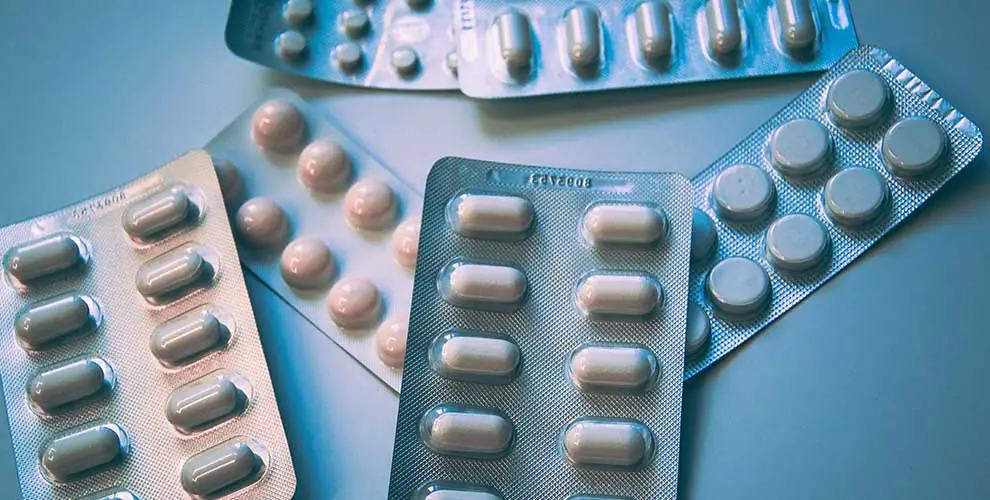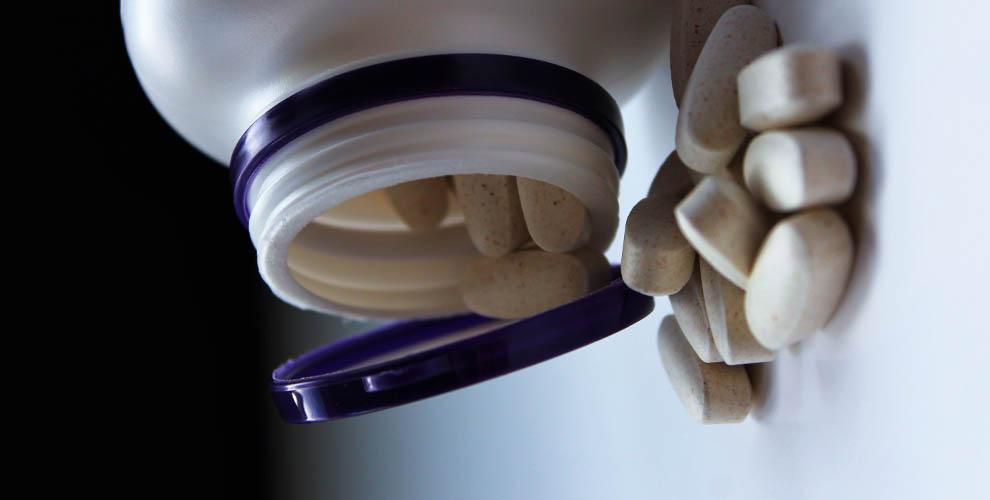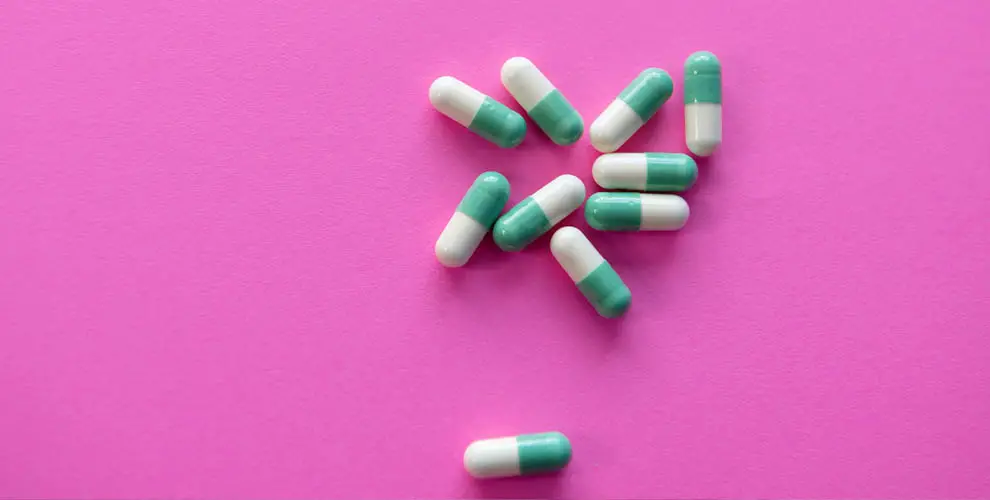Serrapeptase, a naturally occurring enzyme derived from the silkworm, has gained popularity for its potential health benefits. People often turn to supplements like serrapeptase for various reasons, such as reducing inflammation, promoting tissue repair, and aiding in pain management. However, when it comes to taking supplements, questions often arise about possible interactions with other substances, like coffee.
In this article, we will delve into the topic of whether it’s safe to take serrapeptase with coffee and explore key aspects, including potential side effects, serrapeptase’s properties, how to take it, and the ideal timing for consumption. So, if you’re a coffee lover looking to incorporate serrapeptase into your daily routine, read on to make informed choices.
Is There A Risk Of Serrapeptase Side Effects When Taken With Coffee?
One of the first concerns that may cross your mind when considering serrapeptase and coffee together is the potential for side effects. It’s important to note that individual responses can vary, but in general, serrapeptase is considered safe for most people when taken at recommended doses. However, there are some potential side effects to be aware of, especially when combining it with coffee:
a. Gastrointestinal Distress:
Some individuals may experience mild digestive discomfort when taking serrapeptase on an empty stomach. Coffee can also be acidic and may irritate the stomach lining, so combining the two could potentially exacerbate these effects.
b. Increased Heart Rate:
Coffee is well-known for its caffeine content, which can lead to an increased heart rate and potential jitters. Serrapeptase, on the other hand, might have mild blood-thinning properties, so when taken with coffee, it could enhance the effects of caffeine on the cardiovascular system.
It’s essential to monitor how your body reacts to this combination and adjust your routine accordingly. If you’re particularly sensitive to caffeine or have a pre-existing medical condition, it’s advisable to consult a healthcare professional before combining serrapeptase with coffee.
What Exactly Is Serrapeptase?
Before we dive further into the potential interactions, let’s gain a better understanding of what serrapeptase is and why it’s becoming increasingly popular in the realm of dietary supplements.
Serrapeptase, also known as Serratiopeptidase, is a proteolytic enzyme. Proteolytic enzymes are naturally occurring substances in our bodies responsible for breaking down proteins into smaller components. Serrapeptase, however, is not produced by the human body but is sourced from the Serratia marcescens bacteria found in silkworms. This enzyme has been used for years in traditional medicine, particularly in Japan, for its anti-inflammatory and analgesic properties.
Serrapeptase is believed to work by breaking down and digesting non-living tissue, such as scars, blood clots, and inflammation. This action is thought to help reduce pain, inflammation, and improve overall tissue healing. As a result, serrapeptase has gained recognition as a natural alternative for those seeking relief from various health conditions.
In the following sections, we’ll explore how to take serrapeptase, what to avoid, and the best times to incorporate it into your daily routine, especially when considering your coffee consumption. So, stay with us as we navigate through the world of serrapeptase and coffee interactions.
What to Avoid When Taking Serrapeptase?

When incorporating serrapeptase into your daily routine, it’s crucial to be aware of some guidelines to ensure you maximize its benefits and minimize potential risks. Here are a few things to consider:
1. Avoid Taking Serrapeptase on an Empty Stomach:
Serrapeptase is best taken with food. As mentioned earlier, some individuals may experience mild digestive discomfort when taking it on an empty stomach. Pairing it with your regular meals can help reduce the risk of stomach upset.
2. Stay Hydrated:
Adequate hydration is essential when taking serrapeptase. Drinking enough water helps to support the body’s natural detoxification processes and may minimize the risk of side effects.
3. Be Mindful of Medication Interactions:
If you are taking medications, especially blood-thinning drugs, consult your healthcare provider before adding serrapeptase to your regimen. Serrapeptase’s mild blood-thinning properties can potentially interact with certain medications.
How Should Serrapeptase Be Taken?

The recommended dosage of serrapeptase can vary depending on the specific supplement and its intended purpose. It’s vital to follow the manufacturer’s instructions and consult with a healthcare professional if you have any doubts. In general, serrapeptase is available in various forms, such as capsules, tablets, and enteric-coated formulations.
The enteric-coated option is designed to resist the acidic environment of the stomach and release the enzyme in the alkaline environment of the small intestine. This can be particularly useful in reducing the risk of stomach discomfort.
How Long Should You Wait to Eat After Taking Serrapeptase?

Photo credit: Unsplash
Ideally, you should take serrapeptase with a meal or immediately before eating. Taking it in this manner can help buffer any potential stomach upset and promote optimal absorption.
Is It Better to Take Serrapeptase in the Morning or Night?

Photo credit: Unsplash
The timing of serrapeptase intake is a common question, and the answer may depend on your personal preferences and lifestyle. Some people find it convenient to take it in the morning with breakfast, while others prefer taking it in the evening with dinner. The key is consistency. Whether you choose morning or night, try to stick to the same time each day to establish a routine.
In summary, while serrapeptase is generally considered safe for most people, it’s essential to be cautious when combining it with coffee due to the potential for increased heart rate and gastrointestinal discomfort. Monitor your body’s response and consider consulting a healthcare professional if you have any concerns or existing medical conditions.
Can I Take Serrapeptase with Other Vitamins?

Photo credit: Unsplash
Are you considering adding serrapeptase to your daily supplement routine but wondering if serrapeptase can be taken with other vitamins? You’re not alone. Many people are curious about potential interactions and whether combining serrapeptase with other vitamins is safe and effective. In this blog post, we’ll dive into this topic, providing you with the information you need to make informed decisions about your supplement regimen.
Can Serrapeptase Be Taken with Other Vitamins?
The short answer is, yes, serrapeptase can generally be taken with other vitamins. However, there are important factors to consider:
Consult a Healthcare Professional
Before making any changes to your supplement regimen, it’s always advisable to consult with a healthcare professional. They can provide personalized guidance based on your specific health needs and any potential interactions.
Potential Interactions
While serrapeptase is generally safe, it’s essential to be aware of potential interactions with specific vitamins or medications:
Blood Thinners:
Serrapeptase has natural blood-thinning properties. If you’re taking blood-thinning medications, consult your healthcare provider before adding serrapeptase to your routine to avoid excessive thinning of the blood.
Proteolytic Enzymes:
Serrapeptase is a proteolytic enzyme. If you’re already taking other enzymes like bromelain or papain, be mindful of the total enzyme intake to prevent digestive discomfort.
Timing Matters
The timing of your supplement intake can influence their effectiveness. Serrapeptase is often recommended to be taken on an empty stomach for optimal absorption. Some vitamins, on the other hand, may be better absorbed with food. Plan your supplement schedule to accommodate these requirements.
Dosage Considerations
Ensure that you follow the recommended dosage instructions on the supplement labels or those provided by your healthcare professional. The appropriate dosage may vary based on your individual health needs.
Maximizing the Benefits
To get the most out of your serrapeptase and vitamin regimen, consider these tips:
- Consistency: Make taking your supplements a daily routine for best results.
- Quality Matters: Choose high-quality supplements from reputable brands to ensure purity and effectiveness.
- Stay Informed: Stay updated on any new research or developments related to serrapeptase and vitamin supplementation.
- Monitor Your Health: Pay close attention to how your body responds to the combination of serrapeptase and other vitamins. If you experience any adverse effects, seek advice from your healthcare provider promptly.
Taking serrapeptase with other vitamins can be safe and beneficial, but it’s crucial to seek guidance from a healthcare professional to ensure it’s suitable for your unique situation. Proper timing, dosages, and the use of high-quality supplements are key to maximizing the benefits of your supplement regimen.
By following these guidelines and staying informed, you can confidently embark on your journey towards better health with serrapeptase and other vitamins.
Remember, when combining serrapeptase with other vitamins, your well-being should always be a top priority. Enjoy the potential health benefits while minimizing any potential interactions. So, can you take serrapeptase with other vitamins? Yes, you can, but do so wisely and responsibly.
What happens if I take serrapeptase with food?

Photo credit: Unsplash
Serrapeptase is a popular enzyme supplement known for its potential health benefits, including anti-inflammatory properties and support for various health conditions. Many people wonder whether they can take serrapeptase with food without compromising its effectiveness. In this blog post, we will explore the impact of taking serrapeptase with food, the benefits, and considerations for the best results.
Taking Serrapeptase with Food: What Happens?
Impact on Absorption
Serrapeptase is a proteolytic enzyme, which means it helps break down proteins in the body. When you take serrapeptase with food, especially a large meal, the enzymes may be diverted to aid in the digestion of dietary proteins rather than reaching their intended target in your bloodstream.
Reduced Absorption:
Consuming serrapeptase with a heavy meal may reduce its absorption and effectiveness, as it may not pass through the digestive system as readily.
Delayed Action:
Taking serrapeptase with food may also delay its action, as it has to compete with other digestive processes in the stomach.
Optimal Timing for Serrapeptase
To maximize the benefits of serrapeptase, it’s generally recommended to take it on an empty stomach. This allows the enzymes to be absorbed more efficiently and to reach their intended sites in the body.
Empty Stomach:
Taking serrapeptase at least 30 minutes before a meal or 2 hours after a meal is often considered the best practice.
Water Intake:
To further aid absorption, drinking a glass of water with serrapeptase can help ensure it reaches your digestive system without being broken down prematurely.
Considerations
While taking serrapeptase with food may reduce its absorption, there are cases where it can be beneficial:
Gastrointestinal Comfort:
If you experience stomach discomfort or irritation when taking serrapeptase on an empty stomach, taking it with a small amount of food may help alleviate these issues.
Ease of Consumption:
Some individuals may find it more convenient to incorporate serrapeptase into their meal routine, making it easier to remember and adhere to their supplementation schedule.
Taking serrapeptase with food is possible, but it may impact the absorption and effectiveness of this enzyme supplement. For optimal results, it is generally recommended to take serrapeptase on an empty stomach, allowing it to be absorbed efficiently and deliver its potential benefits.
However, if you experience digestive discomfort when taking serrapeptase without food or find it more convenient to include it with a meal, doing so occasionally may be acceptable. The key is to be mindful of the potential effects and decide what works best for your unique needs.
Remember, the timing of serrapeptase intake can affect its performance, and the choice of whether to take it with or without food should align with your comfort and goals. If you have concerns or questions, it’s always wise to consult with a healthcare professional for personalized guidance.
Can Serrapeptase Harm The Liver?
Serrapeptase is a naturally occurring enzyme derived from the silkworm, and its use as a dietary supplement has raised questions about its potential impact on liver health. Let’s explore this topic in more detail.
While serrapeptase is generally regarded as safe for most individuals, like any supplement, it may not be suitable for everyone. Some concerns have been raised about its potential impact on the liver, although concrete evidence supporting this claim remains limited. To date, there are no well-documented cases of liver damage directly attributed to serrapeptase use.
Liver health is a critical aspect of overall well-being, and it’s essential to consider any possible interactions between supplements and the liver. If you have pre-existing liver conditions or are taking medications that affect liver function, it’s advisable to consult a healthcare professional before incorporating serrapeptase into your routine. Monitoring liver enzyme levels during serrapeptase supplementation may also be recommended for those with underlying liver issues.
Is Serrapeptase Good for the Heart?
The potential cardiovascular benefits of serrapeptase have gained attention, and it’s worth exploring how serrapeptase may positively impact heart health.
Serrapeptase’s primary mechanism of action involves breaking down proteins, which can have anti-inflammatory effects. Inflammation plays a significant role in the development of cardiovascular issues, including atherosclerosis. Some studies suggest that serrapeptase may help reduce arterial plaque and improve blood circulation, which can indirectly benefit heart health.
However, it’s crucial to understand that serrapeptase should not be seen as a standalone solution for heart health. Lifestyle factors, such as a balanced diet, regular exercise, and other heart-healthy practices, remain essential. If you have heart-related concerns or are considering serrapeptase for its potential cardiovascular benefits, it’s wise to consult a healthcare provider to ensure it aligns with your overall cardiac care plan.
How Long Can You Safely Take Serrapeptase?
Determining the safe duration for serrapeptase supplementation is important to ensure that you are using it responsibly and effectively.
The safety and duration of serrapeptase use can vary depending on individual needs and the specific health issues being addressed. Generally, serrapeptase is considered safe for short-term and long-term use. However, it’s crucial to follow the recommended dosages provided by the manufacturer and consult with a healthcare professional, especially if you plan to use serrapeptase as a long-term dietary supplement. They can provide guidance tailored to your specific health goals and concerns.
Is Serrapeptase Good for Weight Loss?
The potential relationship between serrapeptase and weight loss has intrigued many individuals looking for natural solutions to manage their weight.
Serrapeptase may indirectly contribute to weight loss through its anti-inflammatory properties. By reducing inflammation, it may alleviate conditions associated with weight gain, such as chronic pain and swelling. However, it’s important to note that serrapeptase is not a miracle weight-loss solution and should be complemented with a healthy diet and regular exercise for sustainable results.
If weight loss is your primary goal, it’s advisable to consult a healthcare professional or a registered dietitian to create a comprehensive weight management plan tailored to your individual needs.
Does Serrapeptase Really Work?
The effectiveness of serrapeptase is a question on many people’s minds. Let’s dive into what research and anecdotal evidence suggest regarding its efficacy.
Serrapeptase has been the subject of various studies, and while some findings are promising, the evidence remains mixed. Users have reported positive experiences, especially in reducing inflammation and managing pain. However, individual responses can vary, and not everyone may experience the same level of benefit.
The efficacy of serrapeptase may depend on factors like the specific health condition being addressed, dosage, and individual physiology. It’s important to approach serrapeptase use with realistic expectations and consult with a healthcare provider to determine if it aligns with your health goals.
How Long Does Serrapeptase Take To Start Showing Its Effects?
The timeline for experiencing the effects of serrapeptase is a common concern. Let’s explore when users can expect to see results and what factors may influence the timing.
The time it takes to notice the effects of serrapeptase can vary widely. Some users report experiencing relief within a few days, while others may take several weeks to observe significant improvements. Factors that can influence this timeline include the specific health issue, the dosage used, and individual variations in response.
As a general guideline, it’s advisable to give serrapeptase several weeks to evaluate its effectiveness for your particular health concern. Remember that consistency in usage is often key to experiencing the full benefits.
In the next part of this article, we will continue to explore the best practices for taking serrapeptase, its potential side effects, and provide a well-rounded view of its use as a dietary supplement. Stay tuned for more insights and expert advice on serrapeptase and its role in your overall health and wellness.
What Are The Side Effects Of Serrapeptase?
Understanding the potential side effects and precautions associated with serrapeptase is crucial for responsible supplementation.
Serrapeptase is generally considered safe for most people when used as directed. However, some individuals may experience mild side effects, such as gastrointestinal discomfort, when taken on an empty stomach. In rare cases, allergic reactions or skin rashes have been reported.
Serrapeptase may have mild blood-thinning properties, which could potentially increase the risk of bleeding, especially when combined with blood-thinning medications. If you’re taking such medications or have a history of bleeding disorders, consult a healthcare provider before using serrapeptase.
As with any supplement, it’s important to be aware of how your body responds and to consult with a healthcare professional if you have specific health concerns or conditions.
Making the Most of Serrapeptase with Coffee: Tips and Recommendations

Photo credit: Unsplash
Now that we’ve covered the basics of serrapeptase and its potential interactions with coffee, let’s explore some practical tips and recommendations to help you make the most of this enzyme while enjoying your favorite coffee:
1. Monitor Your Body’s Response:
As with any supplement, it’s crucial to be attuned to how your body reacts to serrapeptase and coffee. If you experience discomfort or adverse effects, consider adjusting your routine or consulting a healthcare professional.
2. Choose Quality Supplements:
When selecting a serrapeptase supplement, opt for reputable brands known for their quality and purity. This can help ensure you’re getting a reliable product that meets the necessary standards.
3. Maintain Consistency:
Whether you choose to take serrapeptase in the morning or evening, consistency is key. Regular use is often more effective in reaping the potential benefits of this enzyme.
4. Stay Informed:
Stay updated with the latest research and recommendations regarding serrapeptase and its interactions. The field of dietary supplements is ever-evolving, and new information may emerge.
5. Consult a Healthcare Professional:
If you have any underlying health conditions or are currently taking medications, it’s wise to seek guidance from a healthcare provider before introducing serrapeptase or making significant changes to your supplement routine.
Conclusion: Balancing Serrapeptase and Coffee
In conclusion, the question of whether you can take serrapeptase with coffee has nuances that depend on your individual circumstances. While serrapeptase is generally considered safe when taken as directed, it’s crucial to be aware of potential side effects, especially when combined with coffee. Understanding how your body responds to this combination is key.
As you navigate the world of serrapeptase and coffee interactions, remember that moderation and mindful consumption are essential. By following the recommended guidelines and staying informed, you can harness the potential benefits of serrapeptase while continuing to enjoy your daily cup of coffee.
We hope this article has provided you with valuable insights into the topic of serrapeptase and coffee. If you have any more questions or concerns, don’t hesitate to reach out to healthcare professionals or experts in the field. Making informed choices about your health and well-being is always a wise decision.
Stay tuned for more informative content and expert advice on a wide range of health and lifestyle topics. We’re here to help you make the best decisions for your unique needs and preferences.
Related article:


